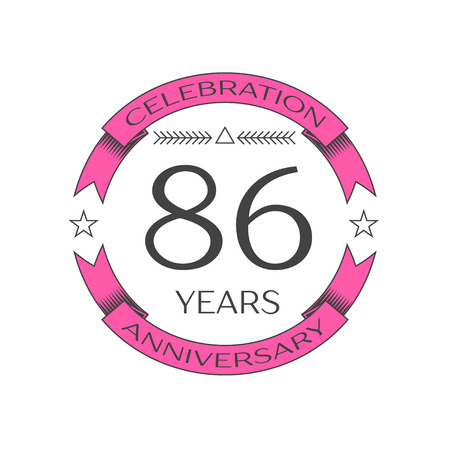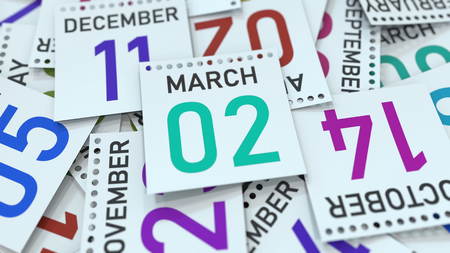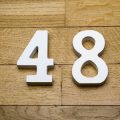Introduction: The British Sense of Self
British identity is a tapestry woven from centuries of history, tradition, and evolving cultural values. From the rolling hills of the countryside to the bustling streets of London, there exists a distinct sense of self that shapes how individuals in the UK perceive their place in society. This sense of self is not merely defined by geography or accent but is deeply informed by shared rituals, collective memory, and an understated pride in resilience and wit. As conversations around identity have grown more nuanced in recent years, many Britons now look beyond ancestry and social class to explore alternative ways of understanding themselves. In this context, birth dates—often reduced to mere data points—have begun to attract fresh interest as potential keys to personal insight. This article sets the stage for a cross-disciplinary exploration: how might systems like Chaldean and Pythagorean numerology offer new perspectives on British identity? By examining the intersection between birth dates and the uniquely British sense of self, we invite readers to consider whether these ancient traditions can illuminate contemporary questions about who we are and what it means to be British.
2. A Brief History of Numerology in the British Isles
While many associate numerology with Eastern or Mediterranean origins, the influence of esoteric and numerological traditions such as the Chaldean and Pythagorean systems has subtly woven itself into the fabric of British society for centuries. Although not as widely acknowledged as other cultural forces, these mystical number-based philosophies found resonance among certain circles across the British Isles—especially within the intellectual, spiritual, and even aristocratic communities.
Esoteric Currents: From Antiquity to Albion
The journey began with early contacts between Britain and the wider world, particularly during the Roman occupation and through subsequent connections with continental Europe. Greek and later Roman scholars brought with them knowledge of Pythagoras’s numerical mysticism, where numbers were believed to hold cosmic significance far beyond their arithmetic value. Simultaneously, whispers of Chaldean wisdom—rooted in ancient Babylon—filtered through via trade routes and scholarly exchanges.
Numerology’s Footprint on British Society
Although these systems remained largely undercurrents compared to mainstream Christian doctrine, they became quietly influential among secret societies, freemasonic lodges, and learned circles in cities like London, Edinburgh, and Bath. British fascination with numerology peaked during the Enlightenment and Victorian eras when curiosity about science and the occult often overlapped. Writers, architects, and even politicians dabbled in these interpretive frameworks to seek meaning in personal events—birth dates chief among them.
Chaldean vs. Pythagorean: Core Differences in Approach
| System | Origin | Key Characteristics | Cultural Resonance in Britain |
|---|---|---|---|
| Chaldean Numerology | Babylon (Ancient Mesopotamia) | Focuses on vibrations of names; uses 1-8; interprets both letters and birth dates uniquely | Favoured by mystics seeking deeper spiritual insight into identity and fate |
| Pythagorean Numerology | Greece (Pythagoras) | Assigns values 1-9; more mathematical; links personal numbers to universal principles | Popular among rationalists blending scientific curiosity with personal introspection |
An Enduring Undercurrent
Despite never being fully mainstream, these numerological traditions have shaped aspects of British identity from behind the scenes. Whether through folklore linking certain birth dates to luck or misfortune, or through literary works imbued with numerical symbolism, the legacy of Chaldean and Pythagorean thought persists—even if its presence is sometimes felt more than seen. As we explore how birth dates interact with British identity in contemporary times, it is vital to recognise these hidden historical influences that continue to colour our collective sense of self.

3. The Chaldean Perspective: Birth Dates and Personal Resonance
The Chaldean numerological system, with its roots in ancient Mesopotamia, offers a unique lens through which to interpret birth dates—one that resonates intriguingly with British sensibilities. Unlike the more mathematical Pythagorean approach, the Chaldean method places emphasis on the vibrational qualities of numbers, each linked to distinct energies and personal characteristics. When applied to British birth dates, this system reveals layers of meaning that often echo archetypal British traits such as stoicism, wit, reserve, and understated strength.
Within the Chaldean tradition, numbers are not just abstract figures; they possess a living quality that is believed to shape destiny and personality. For example, those born on the 7th or 16th of any month—a number deeply associated with analysis and reflection—may find themselves embodying the renowned British tendency toward introspection and quiet confidence. Similarly, individuals whose birth dates reduce to the number 4 may display practical resilience and reliability, traits closely aligned with the celebrated British stiff upper lip.
This system also takes into account the subtle interplay between one’s given name and date of birth, suggesting that certain combinations are especially potent in cultivating traits like diplomacy or eccentricity—both staples in the British national character. The Chaldean approach thus becomes a mirror reflecting the nuanced tapestry of British identity: from the dry humour found in everyday conversation to a collective preference for moderation over excess.
Ultimately, interpreting British birth dates through the Chaldean lens invites us to appreciate how ancient wisdom can illuminate contemporary cultural identities. It offers both a nod to history and an invitation to self-discovery—a reminder that numbers, much like people, carry stories waiting to be uncovered.
4. The Pythagorean System: Mathematical Tradition Meets British Rationality
The Pythagorean system, with its roots in ancient Greece, is renowned for its logical framework and unwavering reliance on mathematics. Every letter is assigned a value from 1 to 9, creating a disciplined system that appeals to those who favour order and reason over mysticism. This structured approach has found a receptive audience in Britain—a nation celebrated for its methodical institutions, understated wit, and stoic rationalism.
It’s no coincidence that the British temperament, often described as reserved yet deeply analytical, finds resonance with the Pythagorean numerological tradition. Where other systems may lean into the mysterious or mystical, the Pythagorean method draws upon calculation and pattern recognition—qualities often admired in British culture, from Newtonian physics to the “keep calm and carry on” mentality.
How Pythagorean Numerology Works
The mechanics of the Pythagorean system are straightforward:
| Letter | Numerical Value |
|---|---|
| A, J, S | 1 |
| B, K, T | 2 |
| C, L, U | 3 |
| D, M, V | 4 |
| E, N, W | 5 |
| F, O, X | 6 |
| G, P, Y | 7 |
| H, Q, Z | 8 |
| I, R | 9 |
This clarity and transparency appeal to the British penchant for fair play and transparent rules—think cricket’s byzantine regulations or Parliament’s procedural rigour. Calculating one’s birth date or name number becomes less about esoteric secrets and more about personal enquiry through logic.
Pythagorean Numerology vs. British Character Traits
| Pythagorean Numerology Trait | British Temperament Parallel (or Contrast) |
|---|---|
| Order and Logic | Loves queuing and rules; values structure in daily life. |
| Skepticism of Mysticism | Tends towards pragmatism; “seeing is believing.” |
| Individual Calculation & Analysis | Cherishes privacy and introspection; enjoys puzzles and crosswords. |
| Straightforward Methods | No-nonsense attitude; prefers clarity over ambiguity. |
| Pursuit of Self-Knowledge via Numbers | Keen interest in self-improvement (from gardening to genealogy). |
This alignment isn’t absolute—after all, British humour delights in subverting expectations—but the underlying synergy between the rational Pythagorean tradition and British identity offers fertile ground for exploration. In contemporary Britain, where ancient customs blend seamlessly with modern sensibilities, numerology can become yet another lens through which Britons examine their sense of self—with both a raised eyebrow and an open mind.
5. Everyday British Life: Numerology at the Pub and Beyond
Walk into any local pub across the UK, and you’re likely to overhear a spirited exchange about everything from last night’s footie scores to the “luck” in a mate’s birthday. While numerology may not dominate the headlines of The Times or be a hot topic on BBC Breakfast, its playful presence is woven into the fabric of everyday banter. Picture a group gathered round a table, pints in hand, debating whether someone’s birth date is responsible for their legendary streak of good fortune—“Trust you, born on the seventh!”—or for their knack for landing in sticky situations.
Within such settings, Chaldean and Pythagorean interpretations might pop up less as solemn doctrine and more as fodder for witty repartee. For instance, if someone reveals they’re a ‘Life Path 8’, a friend might joke, “No wonder you always buy the next round—you’re destined for abundance!” These lighthearted quips nod to the deeper traditions without ever taking themselves too seriously—a hallmark of British humour.
Beyond the pub, numerological musings crop up in other corners of daily life. Whether it’s picking EuroMillions numbers based on anniversaries and birthdays or consulting horoscopes in the Metro during the morning commute, there’s an enduring fascination with finding patterns and meaning in numbers. Even schools sometimes touch on numerology when exploring cultural beliefs in RE lessons, showing its subtle reach across generations.
Yet, true to form, most Brits approach these ideas with a characteristic blend of curiosity and scepticism. It’s not uncommon to hear someone proclaim, “I’m a Leo and my lucky number’s nine, but I’ll take my chances with whatever comes.” This mix of tradition, tongue-in-cheek irreverence, and open-mindedness reflects how numerological interpretations have become part of Britain’s informal cultural landscape—never quite mainstream, but never entirely absent either.
6. A Matter for Debate: Scepticism, Curiosity, and British Pragmatism
When it comes to mystical traditions like numerology, the British public brings a distinctive blend of scepticism, curiosity, and pragmatic humour to the conversation. The very idea of drawing meaning from birth dates—whether through Chaldean or Pythagorean numerological systems—may be met with a raised eyebrow or an ironic quip at the local pub. Yet, there’s more nuance here than outright dismissal; British identity is often characterised by an ability to entertain ideas without necessarily embracing them wholeheartedly.
The Role of Scepticism in Shaping Discourse
Scepticism is almost a national pastime in Britain. It doesn’t simply serve as a barrier to belief; rather, it encourages rigorous questioning and a demand for evidence. In the context of numerology, this means that claims about numbers influencing personality or fate are likely to be dissected with a dry wit and an insistence on “taking it all with a pinch of salt.” This attitude helps foster open discussion, where extravagant claims are scrutinised but not entirely shut down.
Curiosity Amidst Doubt
Despite this sceptical outlook, there’s also a genuine curiosity embedded within British culture. People may be quick to joke about their “lucky number” or reference their birth date’s supposed significance in jest, but beneath the humour lies an openness to playful exploration. It’s not uncommon for Britons to dabble in numerological readings at fairs or during late-night chats, treating these moments as opportunities for light-hearted self-reflection rather than serious prophecy.
British Pragmatism: Striking a Balance
Ultimately, British pragmatism acts as the referee between belief and disbelief. There’s a cultural tendency to “give it a go” while maintaining one foot firmly planted in reality. Numerology might never become mainstream or taken too seriously here, but its presence in British life—as entertainment, conversation starter, or even mild comfort—is quietly acknowledged. This uniquely British approach allows space for both sceptics and enthusiasts alike to engage with mystical traditions without losing sight of common sense or good humour.
7. Conclusion: Numbers, Heritage, and the Ever-Evolving British Identity
As we draw together the threads of Chaldean and Pythagorean numerological traditions with the tapestry of British identity, a fascinating pattern emerges—one that is both ancient and distinctly modern. The United Kingdom has long been a crucible for cultural cross-pollination, absorbing ideas from far-flung civilisations and transforming them into something uniquely its own. Numerology, with its roots stretching back millennia, finds new resonance in contemporary Britain not simply as a curiosity, but as a lens for self-reflection and cultural dialogue.
This blending of numerological perspectives mirrors Britain’s historical openness to outside influences—whether through trade, migration, or intellectual exchange. The British Isles have often served as a meeting point for diverse philosophies: Druidic traditions mingling with Roman numerals, Renaissance scholars debating Pythagoras’s legacy, Victorian occultists embracing Chaldean mysteries. Each era layered fresh interpretations atop old foundations, resulting in an ever-evolving national character.
Today, this willingness to integrate ancient wisdom speaks volumes about Britain’s approach to identity. Rather than clinging solely to rigid definitions or fixed heritage markers, there is a prevailing sense that personal meaning can be drawn from many sources—including those as esoteric as birth dates and number vibrations. For some Britons, calculating a life path number using Pythagorean or Chaldean methods is not just an exercise in mysticism; it becomes part of a broader quest for self-understanding within the context of British society.
In this light, numerology becomes more than an imported novelty—it is a symbol of how British identity continually absorbs, adapts, and reinterprets global influences. The interplay between numbers and national character thus reveals a nation comfortable with ambiguity and experimentation, willing to explore what resonates personally while contributing to collective cultural evolution.
Ultimately, the story of numerology in Britain is emblematic of the country’s larger narrative: a blend of tradition and transformation. Whether one views these numerical interpretations with scepticism or intrigue, their enduring presence highlights Britain’s remarkable capacity for synthesising disparate elements into something vibrant and meaningful. In embracing both the mystical and the modern, the UK continues to shape an identity that is as enigmatic—and as dynamic—as the numbers themselves.

